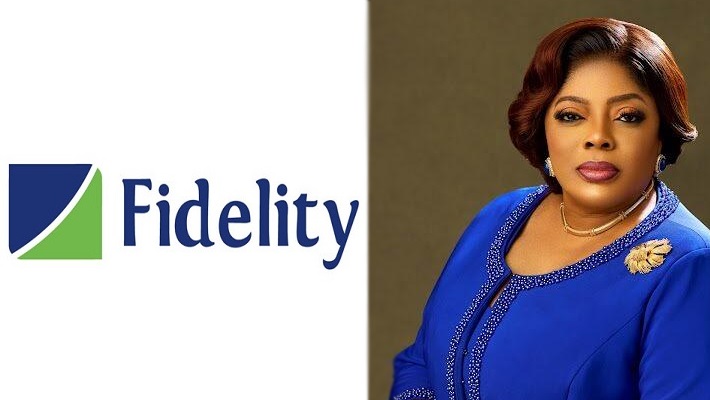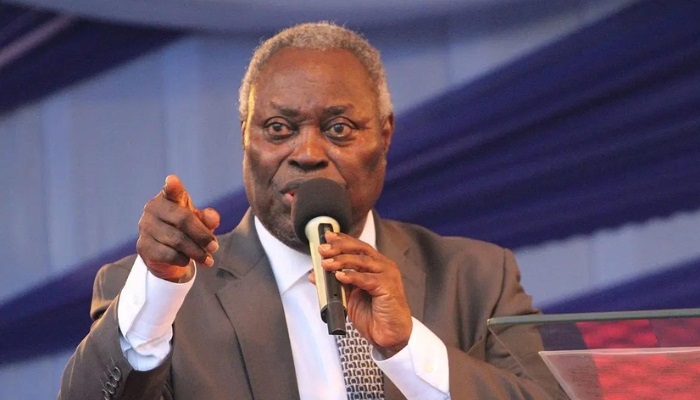The Supreme Court of Nigeria has ordered Fidelity Bank Plc to pay an Ibadan based firm Sagecom Concepts Limited the sum of N225 billion bank for breaching court orders and selling encumbered properties to the firm.
In a unanimous decision delivered on April 11, 2025, the apex court described Fidelity Bank’s action as an attempt to “benefit from its own wrong by disobeying a valid court order.
In the lead judgment delivered by Justice Adamu Jauro and supported by all the other four Justices on the panel, the court condemned the bank’s “egregious conduct” for disregarding the court order, stating it deprived Sagecom of economic benefits for years.
Justice Jauro held that the Appellant (Fidelity Bank), which sold the property to the first Respondent (Sagecom), had the duty of delivering possession to the company.
He also notes, “It is also in evidence that even after the delivery of the judgment of the Federal High Court in suit No. FHC/L/CS/957/2005, the second Respondent (G. Cappa Plc) continued to be in possession and control of the property, hence the judgments of the two lower courts granting the claim for special damages in favour of the first Respondent against the Appellant and second Respondent jointly and severally from 21st June, 2011, are in order.
“In my view, apart from the mountain of evidence against it, allowing the Appellant to escape liability as it so desperately seeks to do here would be tantamount to allowing it to benefit from its own wrong. The notorious principle of equity that a court ought not to allow a person to take advantage of his own wrong still remains part of our jurisprudence,” he held.
In a concurring opinion, a member of the panel, Justice Jummai Hannatu Sankey, held, “The trial Court and the Court below recognised adequately that the Appellant’s wrongful sale directly caused the first Respondent’s financial losses, thus making the Appellant liable in damages regardless of who physically collected the rents.
“This was not an unjust enrichment case, but of compensating an injured party for losses directly flowing from the Appellant’s misconduct. The fact that the 2nd Respondent may have improperly retained possession does not absolve the Appellant of its independent liability for putting the 1st Respondent in this position in the first place.
“What makes this appeal particularly unmeritorious is that the Appellant seeks to benefit from its own clear wrongdoing. Having been found in contempt for violating the Court Order, and having admitted selling the property while aware of the injunction, in addition to having deprived the first Respondent of possession for years, the Appellant now asks this Court to excuse it from the financial consequences of its actions.
“Our legal system does not countenance such an outcome. The maxim ex turpi causa non oritur action, translates as no one should profit from their own wrongdoing,” Justice Sankey stated.
The case at the trial court, which forms the basis of the appeal, centers around the property located at 25, Probyn Road, Ikoyi, comprising ten flats and two penthouses, which was acquired by G. Cappa through a lease agreement with the National Electric Power Authority for a 25-year lease starting on January 1, 2001.
- Cappa mortgaged the property to Fidelity Bank, as security for a loan of $3 million. Additionally, G. Cappa secured another loan with some of its properties in Ibadan, Oyo State.
When these financial obligations fell due and G. Cappa failed to make payment, Fidelity Bank sold one of the properties in Ibadan.
This action led G. Cappa to file suit No. FHC/L/CS/957/2005 against Fidelity Bank concerning the Ibadan properties and the disputed property in this case at the Federal High Court in Lagos.
On September 9, 2005, the Federal High Court granted an interim injunction, restraining Fidelity Bank from further interfering with, disposing of, or taking control of the property in dispute.
Despite this order, Fidelity Bank appointed Hemaco Commercial Enterprises to sell the property on its behalf. Hemaco proceeded to market the property, and Sagecom, unaware of the existing interim injunction, showed interest in purchasing it.
A purchase price of N350 million was agreed upon for the unexpired portion of G. Cappa’s 25-year lease from NEPA.
The sale was finalised in November 2005, with Sagecom paying through its financiers, First City Monument Bank (FCMB).
Fidelity Bank knew that Sagecom financed part of the purchase price with a loan from FCMB at an interest rate of 19.5% per annum. Upon receiving the bank draft for the purchase price, Fidelity Bank handed over the property’s title documents to FCMB as agreed.
They also provided Sagecom with a list detailing the annual rental value of each flat and penthouse that comprised the property.
Sagecom remained unaware of the interim injunction until it discovered an advertisement of the order in The Punch newspaper on January 3, 2006, after the payment had been completed.
After realising the situation, Sagecom wrote to Fidelity Bank through its solicitors, seeking a refund of the purchase price, but the bank did not respond favourably.
Subsequently, Sagecom was joined as a defendant in suit No. FHC/L/CS/957/2005 before the Federal High Court, where it counterclaimed against both Fidelity Bank and G. Cappa for possession and special damages.
On June 20, 2011, the Federal High Court ruled that the power of sale of the Appellant (the 1st Defendant) had indeed arisen and that the assignment of its interest in the disputed property was both regular and proper. However, the court declined jurisdiction over Sagecom’s counterclaim, transferring it to the High Court of Lagos State.
To pursue the counterclaim transferred by the Federal High Court, Sagecom filed a Writ of Summons and Statement of Claim before the High Court of Lagos State, initiating the suit leading to this appeal against G. Cappa as the 1st Defendant and Fidelity Bank as the 2nd Defendant.
The case was resolved in its favour, and the Court of Appeal in Lagos also affirmed Justice Olabisi Akinlade’s judgment.





